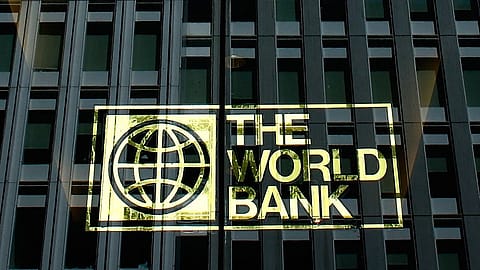World Bank okays projects to raise Maharashtra farm incomes, upgrade Punjab’s education system
Maharashtra’s farmers and Punjab’s students are set to benefit from two long-term World Bank projects. POCRA Phase II will promote precision agriculture and climate resilience, while POISE will introduce computer labs, tablets, and projectors in schools, aiming to improve learning outcomes and livelihoods through technology-driven solutions.

The World Bank Board will fund two long term projects meant to boost the incomes for small and marginal farmers in Maharashtra and improve the quality of education in Punjab using innovative digital solutions.
While more than 2 million small and marginal farmers in Maharashtra, of which 290,000 women, will benefit from improved soil health, nutrient management, and water-use efficiency through the Maharashtra Project on Climate Resilient Agriculture (POCRA) Phase II, the Punjab Outcomes Acceleration in School Education Operation (POISE) programme will ensure 1.3 million students are enrolled in primary schools, and more than 2.2 million students are enrolled in secondary schools. In addition, 592,000 students will be supported in early childhood education.
The World Bank Board of Executive Directors approved POCRA Phase III ($ 490 million) and POISE ($ 286 million) projects on November 25.
PORCA will help improve climate resilience and raise income levels by 30 percent for smallholder farmers across 21 districts in Maharashtra. It will be implemented through four pillars - resource efficient productivity enhancement, promoting precision agriculture for emissions management, improving and building income resilience and lighthouse approach for strengthening institutions.
POISE will support digital infrastructure in schools by setting up computer labs, tablets and projectors to foster innovation, especially for students enrolled in science and math curriculum. The focus of one component of the programme will be to facilitate the provision of capacity-building support to the state's nodal educational institutions (State Council of Education Research and Training, and SCERT Assessment Cell). Another component will support the delivery of these training/resources through state systems, institutions, and teacher educators/resources.
“Digital infrastructure has the potential to significantly drive economic development and poverty reduction by increasing efficiency, fostering innovation, and improving outcomes in health, education, agriculture and other essential sectors,” said Paul Proccee, Acting Country Director, World Bank India. “The two new projects will support India’s vision of Viksit Bharat through quality education for better jobs and using technology for increased crop productivity and improved livelihoods.”
The POISE project has a final maturity of 19 years including a grace period of five years and POCRA Phase II project has a final maturity of 24 years, including a grace period of 6 years.